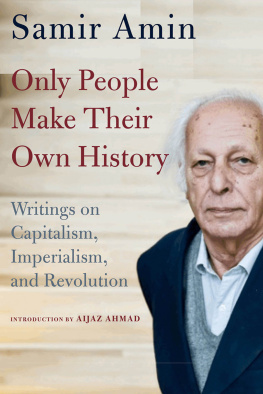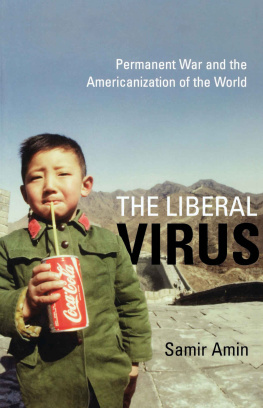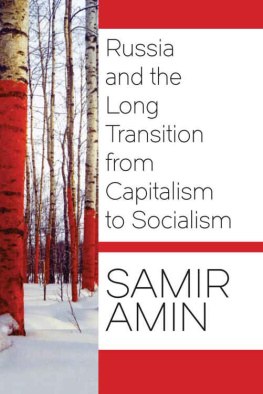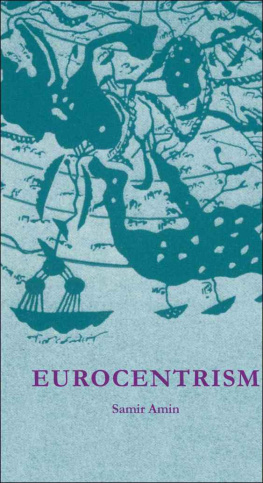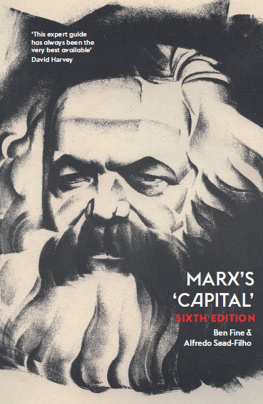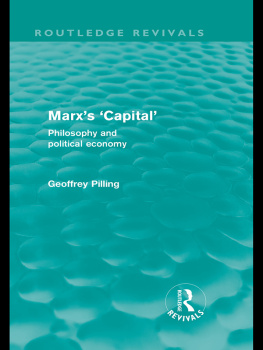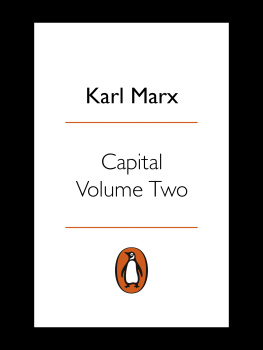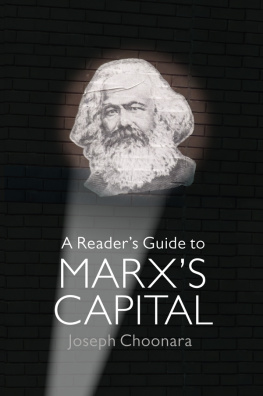Samir Amin - Modern Imperialism, Monopoly Finance Capital, and Marxs Law of Value
Here you can read online Samir Amin - Modern Imperialism, Monopoly Finance Capital, and Marxs Law of Value full text of the book (entire story) in english for free. Download pdf and epub, get meaning, cover and reviews about this ebook. City: New York, year: 2017, publisher: New York University Press, genre: Politics. Description of the work, (preface) as well as reviews are available. Best literature library LitArk.com created for fans of good reading and offers a wide selection of genres:
Romance novel
Science fiction
Adventure
Detective
Science
History
Home and family
Prose
Art
Politics
Computer
Non-fiction
Religion
Business
Children
Humor
Choose a favorite category and find really read worthwhile books. Enjoy immersion in the world of imagination, feel the emotions of the characters or learn something new for yourself, make an fascinating discovery.
- Book:Modern Imperialism, Monopoly Finance Capital, and Marxs Law of Value
- Author:
- Publisher:New York University Press
- Genre:
- Year:2017
- City:New York
- Rating:4 / 5
- Favourites:Add to favourites
- Your mark:
- 80
- 1
- 2
- 3
- 4
- 5
Modern Imperialism, Monopoly Finance Capital, and Marxs Law of Value: summary, description and annotation
We offer to read an annotation, description, summary or preface (depends on what the author of the book "Modern Imperialism, Monopoly Finance Capital, and Marxs Law of Value" wrote himself). If you haven't found the necessary information about the book — write in the comments, we will try to find it.
Modern Imperialism, Monopoly Finance Capital, and Marxs Law of Value — read online for free the complete book (whole text) full work
Below is the text of the book, divided by pages. System saving the place of the last page read, allows you to conveniently read the book "Modern Imperialism, Monopoly Finance Capital, and Marxs Law of Value" online for free, without having to search again every time where you left off. Put a bookmark, and you can go to the page where you finished reading at any time.
Font size:
Interval:
Bookmark:

MODERN IMPERIALISM, MONOPOLY FINANCE CAPITAL, AND MARXS LAW OF VALUE
Modern Imperialism, Monopoly Finance Capital, and Marxs Law of Value
SAMIR AMIN

MONTHLY REVIEW PRESS
New York
Copyright 2018 by Samir Amin
All Rights Reserved
Library of Congress Cataloging-in-Publication Data available from the publisher.
ISBN (paper): 978-1-58367-655-4
ISBN (cloth): 978-1-58367-656-1
MONTHLY REVIEW PRESS
NEW YORK
www.monthlyreview.org
5 4 3 2 1
Contents
PART ONE
The Law of Worldwide Value
Introduction to the English Edition
Marx is not a philosopher, a historian, an economist, a political scientist, or a sociologist. He is not even a scholar of the first rank in any of those disciplines. Nor even a talented professor who prepared a good multidisciplinary dish cooked with all these ingredients. Marxs place is quite outside all that. Marx is the beginning of the radical critique of modern times, starting with the critique of the real world. This radical critique of capitalism demands and allows discovery of the basis of market alienation and, inseparable from it, the exploitation of labor. The foundational status of the concept of value derives from this radical critique. It alone allows a grasp of the objective laws that govern the reproduction of the system, underlying those surface movements perceptible through direct observation of reality. Marx links to this critique of the real world the critique of discourses about that reality: those of philosophy, economics, sociology, history, and political science. This radical critique uncovers their true nature which, in the last analysis, is always an apologetic one, legitimizing the practices of capitals dominating power.
To be a Marxist is to continue the work that Marx merely began, even though that beginning was of an unequaled power. It is not to stop at Marx, but to start from him. For Marx is not a prophet whose conclusions, drawn from a critique of both reality and how it has been read, are all necessarily correct or final. His opus is not a closed theory. Marx is boundless, because the radical critique that he initiated is itself boundless, always incomplete, and must always be the object of its own critique (Marxism as formulated at a particular moment has to undergo a Marxist critique), must unceasingly enrich itself through radical critique, treating whatever novelties the real system produces as newly opened fields of knowledge.
The subtitle of CapitalA Critique of Political Economydoes not mean a critique of a bad (Ricardian) political economy, with a view to replacing it with a good (Marxian) one. It is rather a critique of so-called economic science, an exposure of its true nature (as what the bourgeoisie has to say about its own practice); and so of its epistemological status, an exposure of its limitations, and an invitation to realize that this alleged science, claimed to be independent of historical materialism, cannot possess such independence. Political economy is the outward form assumed by historical materialism (the class struggle) under capitalism. On the logical plane historical materialism is prior to economics, but class struggle under capitalism does not take place in a vacuum: it operates on an economic basis, and shapes laws that appear economic in character.
I shall study this articulation first as it is presented in Capital itself, that is, in the theory of the capitalist mode of production, and then in the reality of the capitalist system of our own dayin imperialism.
My thesis is: (a) that historical materialism constitutes the essence of Marxism; and therefore (b) that the epistemological status of the economic laws of capitalism is such that they are subordinate to the laws of historical materialism; (c) that under the capitalist mode of production economic laws possess a theoretical status different from that which they possess under precapitalist modes; and even (d) that, strictly speaking, economic laws are to be found only under the capitalist mode; (e) that the economic laws of capitalism do indeed exist objectively; and, finally, (f) that these laws are governed, in the last analysis, by the law of value.
Thus, in my view, the class struggle under capitalism in general, and in the imperialist world system in particular, operates on a definite economic basis and, in its turn, changes that basis.
My readings in Marx certainly brought considerable intellectual fulfillment and convinced me of the power of his thought. Still, I was left unsatisfied. For I was asking a central question, that of the underdevelopment of contemporary Asian and African societies, and I found no answer in Marx. Far from abandoning Marx and counting him outdated, I simply came to the conclusion that his opus had remained incomplete. Marx had not finished the opus that he had set out to complete, and that included not integrating the global dimension of capitalism into his analysis. So I have tried to do so. The central axis of the conclusions reached by my efforts is defined by the formulation of a law of globalized value, coherent, on the one hand, with the bases of the law of value proper to capitalism as discovered by Marx and, on the other, with the realities of unequal globalized development.
My major contribution concerns the passage from the law of value to the law of globalized value, based on the hierarchical structuringitself globalizedof the prices of labor-power around its value. Linked to the management practices governing access to natural resources, this globalization of value constitutes the basis for imperialist rent. This, I claim, orders the unfolding of really existing capitalism/imperialisms contradictions and of the conflicts linked to them, so that classes and nations are imbricated, in their struggles and clashes, in all the complex articulation, specific and concrete, of those contradictions. I claim that our reading of the twentieth and twenty-first centuries can be nothing other than that of the emergenceor of the reawakeningof peoples and nations peripheric to the globalized capitalist/imperialist system.
In order to carry out my exposition, I have chosen to take up again my book The Law of Value and Historical Materialism in a new, revised and expanded, edition. In the extensive borrowings that I have made from this old (1978) book I have conserved its essential argument. The new paragraphs draw the readers attention to the challenging questions arising from that retained exposition. If them I have tried to present synthetic explanations whichin themselves adequatedo not preclude coming back to deeper readings.
My theoretical analysis of the really existent globalized capitalist system starts from the law of value formulated by Marx in Volume I of Capital. There is no other possible point of departure, because without the concept of value there is no meaning to that of the accumulation of capitaland so we cannot skip over this detour through value in favor of a direct grasp of realitywhich is implied by a positivist/empiricist methodology, as revealed through observed prices.
The analysis that I am putting forward thus looks next at the three stages in the transformation of value: (1) into prices of production; (2) into market prices (oligopolistic prices, in contemporary capitalism); and (3) into globalized prices (in the globalized imperialist system).
The first of these transformations, taken up in the first chapters of Volume III of Capital, is indispensable to grasping the meaning of the market alienation that governs economic and social life under capitalism and to giving to the laws ruling its systemic reproduction their true stature.
Next pageFont size:
Interval:
Bookmark:
Similar books «Modern Imperialism, Monopoly Finance Capital, and Marxs Law of Value»
Look at similar books to Modern Imperialism, Monopoly Finance Capital, and Marxs Law of Value. We have selected literature similar in name and meaning in the hope of providing readers with more options to find new, interesting, not yet read works.
Discussion, reviews of the book Modern Imperialism, Monopoly Finance Capital, and Marxs Law of Value and just readers' own opinions. Leave your comments, write what you think about the work, its meaning or the main characters. Specify what exactly you liked and what you didn't like, and why you think so.



